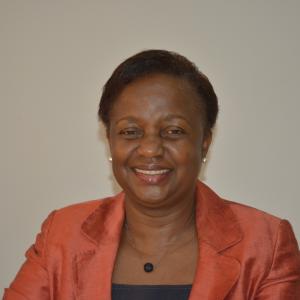Labour Migration Governance Key to Protecting Migrant Workers in Southern Africa
25 November 2022
Victoria Falls, Zimbabwe - The governance of labour migration as an instrument for development in Southern Africa will be put under the spotlight at a high-level tripartite two day dialogue titled: “Labour Migration Governance in the SADC region,” to be held in Victoria Falls, Zimbabwe 29th and 30th November.
The President of Zimbabwe, Dr Emmerson Mnagwanga will officially open the high-level conference which seeks to find ways to foster fair and effective labour migration governance and the protection of migrant workers in Southern Africa. Led by the International Labour Organization (ILO) and the International Organization for Migration (IOM), the High-Level Tripartite Dialogue is a culmination of activities and research organised by the Southern African Migration Management (SAMM) Project to identify priorities at the national level and advance in the implementation of country-level labour migration policies and action plans in the SADC region.
It is designed to improve migration management in the Southern African and Indian Ocean region guided by, and contributing to the realisation of, the 2030 Sustainable Development Agenda goal 8 on decent work and economic growth and goal 10 on reducing inequality and Objective 6 of the Global Compact for Migration (GCM) to Facilitate fair and ethical recruitment and safeguard conditions that ensure decent work.
Since almost half of all migrant workers in the SADC region are women, the conference will spotlight the importance of labour migration policies to be gender-responsive and evidence-based. For many women, as for men, migration can represent a positive experience and have important emancipating and empowering impacts.
According to the United Nations Department of Economic and Social Affairs (UNDESA, year ), the feminization of migration has reached significant levels in the Southern African region with 47 per cent of all migrants being female.
But often female migrants are confronted with gender specific disadvantages and vulnerability in the migration process and in their employment. Women workers, especially young female migrants, often end up in situations of double or even triple discrimination, disadvantage, marginalization and vulnerability (including violence and harassment as well as forced labour.
“Maximizing the benefits of labour migration and minimizing the risks and social costs requires sound and effective labour migration governance,” said Ms. Hopalong Phororo, ILO Director for ILO Country Office for Zimbabwe and Namibia. “Expert studies and data show that migration, particularly labour migration, is an important enabler and beneficiary of regional integration and economic development in Africa.”
Across the world, migration is largely linked to the search for a job and better wages, and even if employment is not the primary driver, it usually features in the migration process at some point. In Southern Africa, as in many parts of the world, migrants face prejudice, intolerance and stigmatization in their workplaces and communities.
“It is necessary to advocate for improved migration management in Southern Africa, as a pivotal approach to addressing the challenges of migration, and ensuring that migration has a positive outcome for the country, migrants, and the members of their families”, said Mr. Ashraf El Nour, IOM Regional Director for Southern Africa.
The Southern African region has had a long history of intra-regional migration. All Member States of the Southern Africa Development Community (SADC) are involved in labour migration flows as countries of origin, transit, or destination and often they play the three roles at the same time.
In the SADC region, migrant workers are present in agriculture, fishing, mining, construction, food processing, domestic work, caregiving, cleaning, restaurants-hotels, transportation and retail trade.
The two day conference will promote fair, ethical and effective labour migration governance through tripartism that brings Ministries of Labour/Employment, Home Affairs and Foreign Affairs, as well as workers’ and employers’ organisations and social dialogue particularly in the development of rights-based, gender-sensitive and evidence-based labour migration legislation and policies, taking account of labour market needs.
The conference will assess labour migration governance progress so far, gaps and challenges as well as main opportunities to consider in the SADC region. It will also identify tripartite constituents’ labour migration governance priority areas of collaboration, share existing and proposed good practices and recommendations and mention current roles and contributions. It will also provide a platform to tripartite partners to re-organise and re-strategize on labour migration governance in Southern Africa
About the SAMM Project
The SAMM Project is a United Nations Multi-Agency programme composed of the International Labour Organization (ILO), the International Organisation for Migration (IOM), the United Nations High Commissioner for Refugees (UNHCR) and the United Nations Office on Drugs and Crime (UNODC). The European Union is supporting and funding the implementation of the project.
Abibo Ngandu





